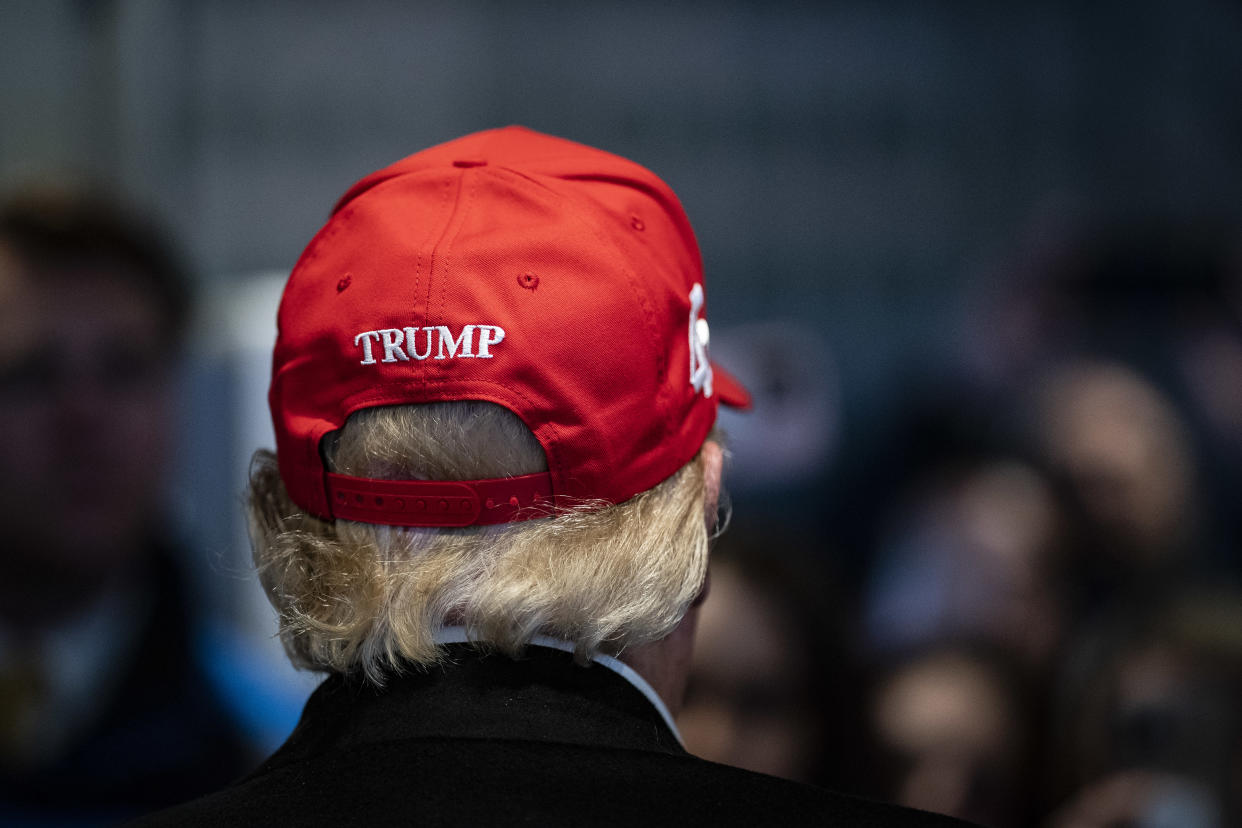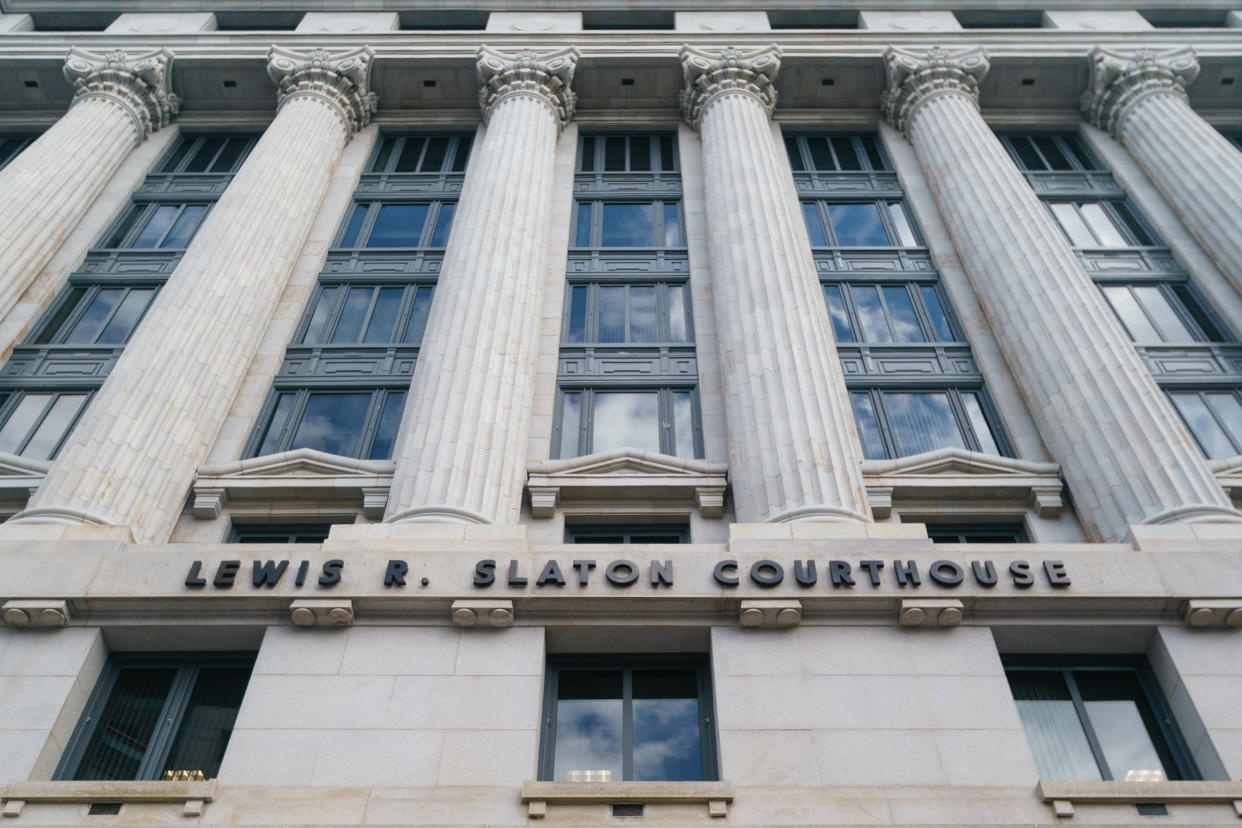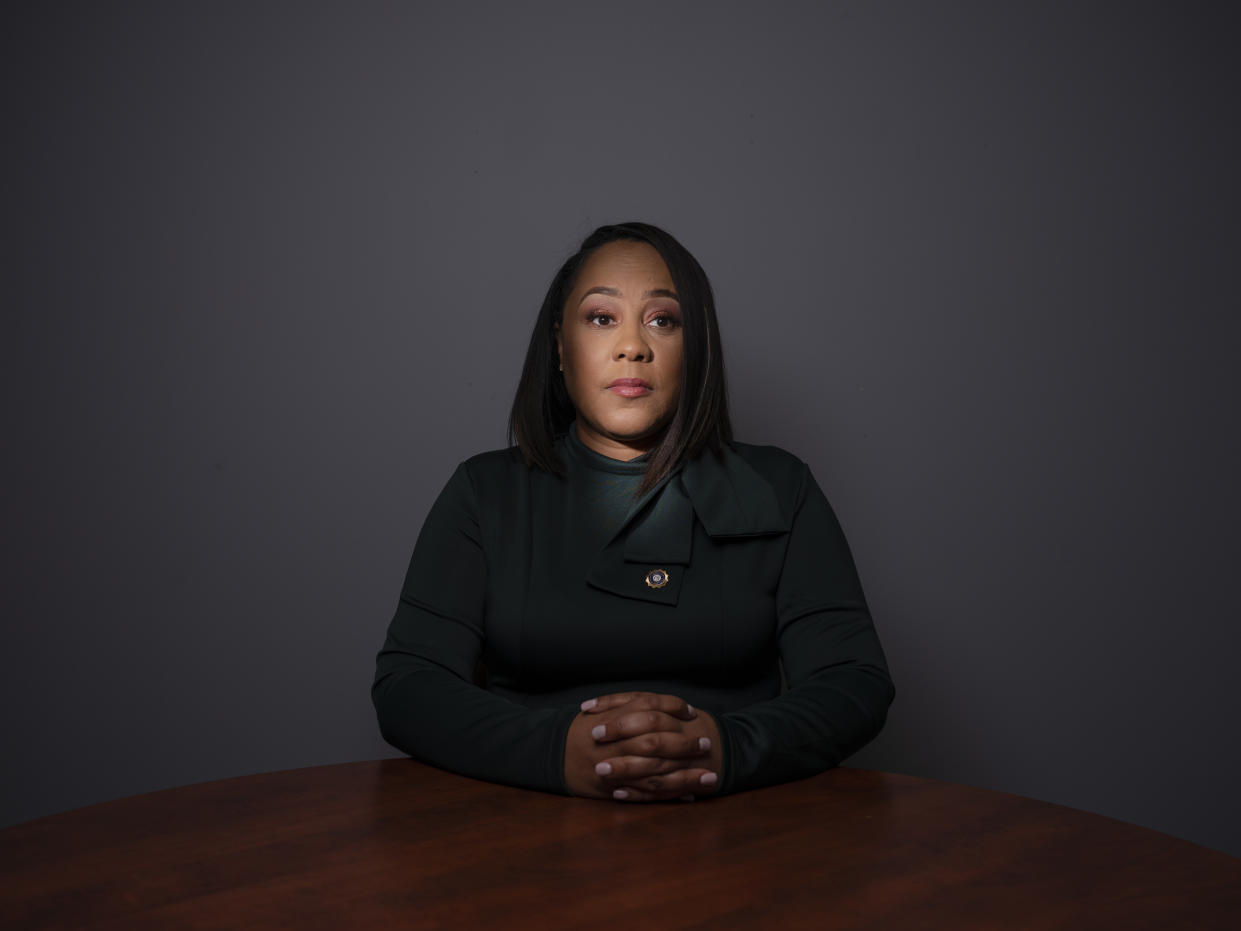Georgia judge gave grand jurors lenient guidance on talking to media about Trump case

Shortly before Emily Kohrs, the foreperson on the Georgia grand jury investigating then-President Donald Trump’s efforts to overturn the 2020 election, embarked upon a much-criticized media tour in which she described details of the panel’s work, the Georgia state judge overseeing the proceedings had called her and the other jurors to his chambers.
Judge Robert McBurney thanked the Fulton County special grand jury panel for their service and advised them on “the rules of the road,” instructing them what they could and couldn’t say to the public about what they had been doing for the past seven months.
“The oath they took is very clear, pretty narrow,” McBurney, who presided over the special grand jury, said in a recent interview with Yahoo News. “They cannot talk about their deliberations ... and so it would be inappropriate for them to talk about the processing they went through; ‘What did you think about so-and-so’s testimony?’ Well, that’s really part of your deliberations.”
But McBurney was more lenient in his guidance about talking to the press than the far stricter rules for federal grand juries or regular Georgia state grand juries. Unlike the Fulton County special grand jury, those have the power not just to make recommendations, but to issue actual indictments. As McBurney interpreted Georgia law and state precedent, the special grand jury was a different animal — an investigative body with subpoena power but no power to indict. Its work product, he concluded, was now a judicial document and the grand jurors were free to talk about what happened during their service so long as they didn’t divulge their deliberations on what they thought of particular witnesses or how they reached their conclusions.

Everything else, McBurney said, was fair game. Asked if that included identifying who the grand jurors had recommended for indictment, he responded, “Right.” (Separately, McBurney told the Atlanta Journal-Constitution that the prohibition on speaking publicly applied only to conversations the grand jurors had among themselves, not what a witness or prosecutor in the room might have said.)
Bowing to the request of Fulton County District Attorney Fani Willis not to jeopardize the rights of future defendants, McBurney released three sections of the special grand jury report last week, including passages in which the grand jurors said they believed “one or more witnesses” had perjured themselves. But he didn’t release who those witnesses were or who the grand jury had voted to indict.
McBurney’s comments to Yahoo News shed new light on the controversy that unfolded this week when Kohrs, 30, gave multiple press interviews that went further than McBurney’s release. She revealed that the special grand jury had recommended that more than a dozen individuals be indicted. Asked directly if Trump himself was among them, Kohrs responded: “You’re not going to be shocked. It’s not rocket science.”
Trump’s chief lawyer in Georgia, Drew Findling, immediately went on the attack, saying that Kohrs’s interviews — during which she occasionally laughed and smirked — had “poisoned” the whole process, turned the grand jury inquiry into a “carnival, clown-like atmosphere” and could be grounds for a legal challenge.

“The lens now provided by this foreperson into the lack of seriousness and respect for this process that existed behind the grand jury walls is truly shocking to the legal conscience,” Findling and two of his co-counsels, Marissa Goldberg and Jennifer Little, said in a statement he shared with Yahoo News. “What we have seen over the past 48-hours proves that whatever conclusions were drawn were not the result of an analytical, trustworthy, or credible investigation as one would expect in a matter of historic proportion such as this.”
Asked by Yahoo News if he believed Kohrs had crossed a line in her interviews, McBurney demurred. It’s “not appropriate for me to comment on that,” he said in an email.
But some legal experts say it’s unlikely that Trump’s lawyers will get very far if they try to use Kohrs’s press interviews as grounds for derailing what is increasingly looking like an indictment of the former president, possibly as early as this spring.
“Any attempt to dismiss the virtually certain indictment of Trump and his co-conspirators will fail under Georgia law,” said Norm Eisen, the former White House ethics lawyer under President Barack Obama and the co-author of a Brookings Institution report last year that analyzed the Georgia investigation and concluded that Trump remains at a substantial risk of being charged under state law for election interference. “Emily Kohrs is neither a member of the regular grand jury that is currently making the decision on indictment nor of the trial jury that will adjudicate it. Because those motions are doomed to fail, this whole flap is going to end up a blip on the radar screen.”
